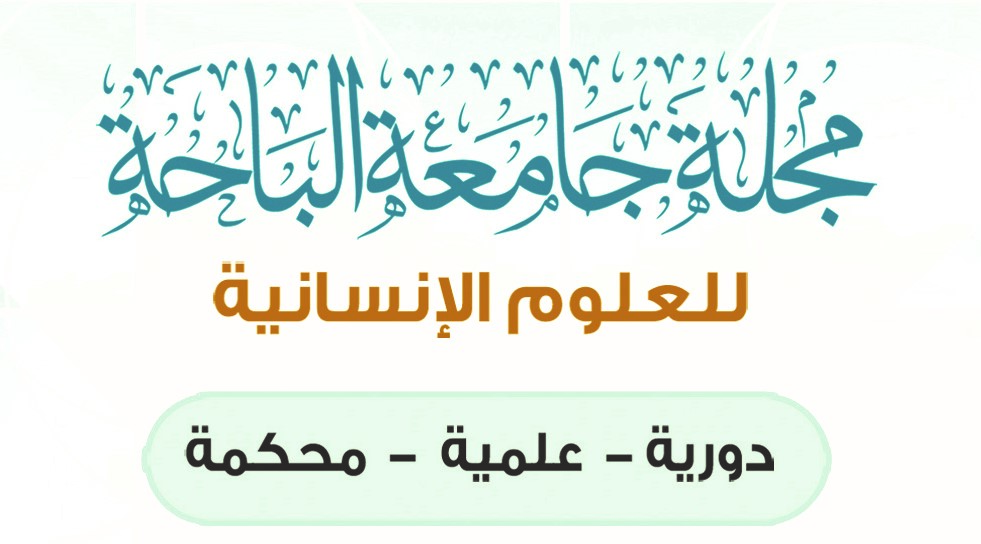Problems with Omission and Addition in the Translation of Sophomore Students
- Dr. Mohammed Ali Elsiddig Ibrahim
- Reseived: 17/3/2022 Received in Revised Form: Accepted: 24/8/2022
-
This research looks into some of the students' translation problems. To offer a full picture of these concerns, the study adopted a descriptive-analytical technique. The study included a total of 20 students who were studying English and were sophomores. An old text was used to gather the information. The research yielded many points that provided the answers to the students' underlying translation challenges. The preposition domain had the most problems in translation and the verb had the greatest problems with translation in the domain of addition. The majority of the problems derived from the linguistic mismatch, the participants' lack of grammar understanding, and sentences between those languages. Other parts of the omission and addition not covered by the study should be addressed in order to uncover these issues.
Fear of Compassion and its Relationship to Alexithymia and Social Communication in Obese Adolescent Girls
- Dr. Nadia Mohammad Alamri Dr. Aisha Fahad Abdullah ibn Yahya
- Reseived: 26/3/2022 Received in Revised Form: Accepted: 5/7/2022
-
The current study aimed to reveal the relationship between the fear of compassion and each of the variables of alexithymia and social communication in a sample of obese adolescent girls, and also aimed to identify the differences between high and low levels of compassion in particular in the alexithymia and social communication scales. On a sample of (160) obese adolescent girls from Saudi society, the study used the alexithymia scale (prepared by Ibrahim and Al-Ghaweiri, 2018), and the measures of social communication and fear of compassion (developed by the researchers), The study found a positive direct correlation between fear of compassion and alexithymia in the study sample and a negative inverse correlation between fear of compassion and social communication. The study also found a negative inverse correlation between alexithymia and social communication in the study sample, as indicated by the results of the study. There are differences between high and low fear of compassion at the level of alexithymia in favor of low fear of compassion, and there are differences between high and low fear of compassion at the level of social communication in favor of low fear of compassion.
The effectiveness of self-questioning and simulation strategies in developing creative writing skills for secondary school students
- Dr. Saleh Ahmed Dekhikh
- Reseived: 12/5/2022 Received in Revised Form: Accepted: 25/6/2022
-
The aim of this study was to measure the effectiveness of self-questioning and interactive simulation on the development of creative writing skills. A quasi-experimental design was used. The study sample consisted of three groups (two experimental, each consisting of 21 students; and one control, consisting of 21 students) from the first secondary grade students in the Department of Education in Bisha province. To achieve the study objectives, a list of creative writing skills, an achievement test, and a guide for teachers to use self-sustaining and simulation were developed. The results revealed that there were statistically significant differences at the level (α = 0.01) between the mean scores in the pre and post measurements of the control group and the two experimental groups (self-questioning and simulation strategy) in the creative writing skills test in favor of the post measurement. The findings also showed statistically significant differences at the level (α = 0.05) between the means of the post-measurement of the first experimental group (the self-questioning strategy), the second experimental group (the simulation strategy), and the control group, in the creative writing skills test in favor of the post-measurement of the second experimental group (the simulation strategy).
The Relationship of Anger with Psychological Flow among University Students in the Light of Some Demographic Variables
- Dr. Abdul Wahab ibn Mishrab Andijani
- Reseived: 29/3/2022 Received in Revised Form: Accepted: 25/6/2022
-
The study aimed to identify the relationship between anger and psychological flow, as well as the level of anger and psychological flow among university students in light of some demographic variables. The two scales of anger and psychological flow (prepared by the researcher) were applied to 224 university students who were randomly selected. The descriptive-correlative approach was used. The results concluded that the level of anger was low, while the level of psychological flow was high. It also indicated that there was no statistically significant difference at (0.05) in anger depending on the variables of gender, university, college, and cumulative average. Furthermore, there were no statistically significant differences at (0.05) in psychological flow according to gender, university, college, and cumulative average, and there was no significant relationship between anger and psychological flow. In light of the results, the study recommended encouraging students to maintain calm and not be angry and highlighting the dangers of anger and the benefits of psychological flow on their public and academic lives. It also recommended training students to take advantage of the psychological flow to achieve their personal goals through counseling programs and benefiting from the study scales to detect anger and psychological flow among university students in other studies.
Fiqh Rulings Related to Salam Sale in Olive and its Oil and Most Important Contemporary Applications
- Dr. Hani ibn Al-Barak ibn Obaid Basalah
- Reseived: 16/3/2022 Received in Revised Form: Accepted: 30/5/2022
-
The research aims to know the jurisprudential rulings related to the Salam sale of olives and their oil and to know the conditions for their validity in them, what is related to the delivery of olives and their oil, and the termination of the Salam contract in them, and to know the most important applications of contemporary sale, such as bank financing and electronic websites, and its products that are composed of olive oil with other materials. The researcher reached out to say it is permissible to Salam sale of olives and olive oil if it meets the considered conditions, and it is not valid to sell olives or olive oil delivered in them before taking them or replacing them with something else. Rescinding the contract or waiting until there are olives or oil, and dismissal is valid in all of the agreed terms in it or in some of the olives or oil. If the Salam sell contract is terminated, the price, its replacement, or its value must be refunded, and it is valid through bank financing and through websites, and it is also valid for peace and manufacturing in products made from olives, or olive oil, with other materials such as Vaseline, soap, and perfume the researcher recommended on the jurisprudential rulings related to this blessed tree, and the study of the jurisprudential rulings related to it, whether in its worship or on transactions.
Uses of the Term "Honesty/Truthfulness" from the Perspective of Al-Hafiz Ibn Udai
- Dr. Abdullah ibn Mohammed Mansour
- Reseived: 6/4/2022 Received in Revised Form: Accepted: 28/5/2022
-
Al-Hafiz Ibn Udai is a prominent imam who is versed in criticism to the effect that the researcher has scrutinized Ibn Udai’s uses of the term honesty/truthfulness and phrases of an analogous nature to determine if it is a term peculiar to Ibn Udai or consistent with the general expressions of vouching and discrediting (impeachment and amendment) which are touted by hadith critics. Specifically, this term has been studied by contemplating those described by Ibn Udai as true to the comparison he drew from the standpoint of the public about them and then determining the connotations presumed to be conveyed by the narrator. In the same context, the study highlighted that most of Ibn Udai's conclusions are consistent with public opinion except for some other viewpoints to the inference that Ibn Udai termed this term on a lot of trustees and non-trusties, and he named it on the one whose hadith is written, and in rare cases, he touted it as weak, but he did not intend to lie in his viewpoint, and it was inferred through this study that Ibn Udai did not single out by this term someone who had good-mannered hadith as was traditionally used by the scholars, but it is an additional description, that is, he intended justice and sometimes honesty, and he did not want it especially lax constraints. Significantly enough, Ibn Uday was one of the moderates in his judgments on criticism, and more studies are recommended on the terminology of scholars in their books, particularly the problematic terms or expressions.
A Comparative Analytical Study on the Possible Connotation of the Terms of Al-Jarh and Al-Ta'deel among the Imams of Criticism: “long-tongued” and “devil” as a Model
- Aisha Fuhaid Badi Al-Khamsan
- Reseived: 4/4/2022 Received in Revised Form: Accepted: 21/5/2022
-
This study seeks to elucidate the importance of studying the terms of Al-Jarh and Al-Ta’deel, particularly the similar ones, with clarification of the connotation of the terms "long-tongued" and "devil" according to the imams of criticism. The study also aims to identify the narrators described with these two terms, explaining their criticism ranks and the most frequently used imams for these two descriptions. These main research objectives were achieved using inductive, analytical, and critical methods. The study’s findings revealed that the term "long-tongued" might be used in diverse ways. The term can be applied to someone who is foul-mouthed or is famous for his eloquence. It is also used to praise or disparage the narrator, which is understood through the context. The Imams have used this term more on hadith practitioners than on others. The number of narrators described with this concept was 16, and most Andalusian scholars used it. The findings also found that the term "devil" was used to describe every rebellious imbecile who is very far from good, whether he/it is from the Jinn, humans, or animals, and it might come to mean the meaning of strength and power. The connotations of this term might be either praising or disparaging the narrator. The imams have applied it to those engaged with hadith and its sciences only. The number of narrators described by this term has reached eleven (11) narrators, and most of those who used it were Iraqi scholars.


